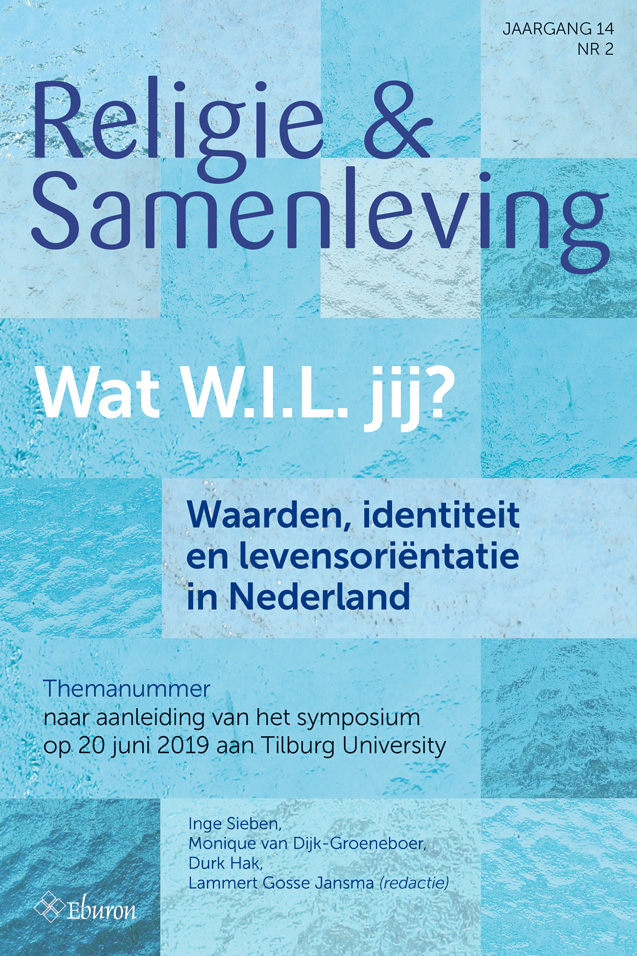Waarden, identiteit en levensbeschouwing: trends in Nederland 1981-2017
DOI:
https://doi.org/10.54195/RS.11575Samenvatting
Based on five waves of the European Values Study, I explore trends in values in the Netherlands from 1981 to 2017. I focus on values related to freedom (tolerance for sexual-ethical aspects of life and for migrants) and solidarity (concern about living conditions of groups in society and social trust), two key values in the Netherlands and Europe. In addition, I explore changes in identity (proud to be Dutch) and life orientation (personal religious beliefs). The results show that the Dutch have significantly become more tolerant in sexual-ethical aspects of life, trust humans more, are more proud to be Dutch, belief in a personal God less and are more convinced that no God or life force exists. Part of these changes can be explained by cohort replacement: individuals born before 1940, who have more traditional values, are slowly replaced in society by those born later. In addition, the trends are caused by period effects, as both older and younger cohorts change their values over time. Future research should investigate which factors are influential here. Finally, no significant trends were observed in tolerance for migrants and in feelings of concern about the living conditions of elderly, unemployed, immigrants and sick and disabled people




